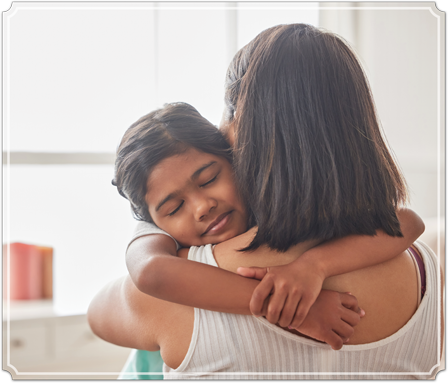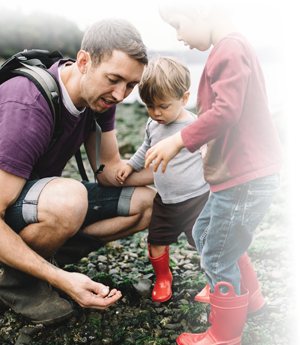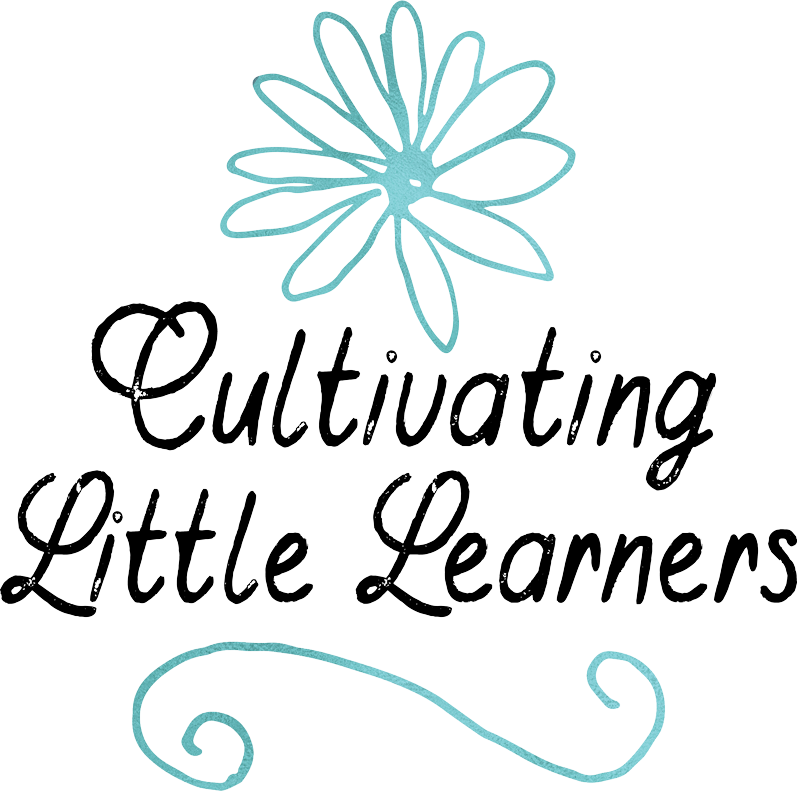“All milestones in life will involve failure at some point. It is in failing that we really grow emotionally, socially, and cognitively.”

Letting Go of the Fear of Failure
God knows moms.
I think it is easy to forget how really and truly known we are—from the sleepless worries running through our brains to our tired, aching feet.
We are convinced that He knows and loves our “momness.” Why? Because the very first advice He gave to the mother of His son was to “Fear not.” He knew we would struggle with worry, anxiety, and fear. He was aware of our frailty and yet trusts us to move forward and take care of His children. He also knows how forgetful we are (we do have a lot of details to manage!), so He reminds us in his Word over 365 times, “Do not be afraid.” It’s as though He gave us one of those page-a-day calendars to keep us from falling into worry and fear.
I (Lesli) have always struggled with fear of failing when it comes to my children. When my first child was born, I thought they were insane to let that sweet baby go home from the hospital with two total youthful idiots. We drove home along the curb at about 5 miles per hour.
I agonized over every choice. Which pediatrician? Should I go with the “cry-it-out” or try the “attachment parenting” philosophy? Which one is associated with producing more serial killers? Would my baby have nipple confusion if I let her dad feed her a bottle? Do kids with nipple confusion do okay in college?
I’m semi-exaggerating… but not really.
My mommy brain could do some mighty crazy mental gymnastics in those early years. I thought that every tiny choice that I made was going to have some type of “butterfly effect” on my child. After saving and saving, even the blessing of choosing a house to buy was overshadowed by my anxious thoughts. What if I chose the wrong neighborhood, with the wrong school, the wrong teachers, the wrong neighbors? What if my kid became a delinquent because I wasn’t listening closely enough to the Lord and picked the wrong house? Your fears might be different than mine, and hopefully not as crazy, but we are human. We all struggle with the illusion of control.
I come from a very chaotic home. When I became a believer and married a Christian man, I was determined that my kids would not have the same struggles that I did. I earnestly believed that I had so much more control than I actually did. I took Growing Kids God’s Way classes. I added the extra umbrella of protection called homeschooling on top of that. I was determined that it was my job to raise little geniuses who never made a bad decision.
It is so embarrassing to look back on! There was so much time I wasted. I can remember being consumed with anxiety in the vendor halls as I tried to choose curriculum. I would come home exhausted and confused and fearful. And broke, because I was afraid I wasn’t buying them enough to make them smart enough to make them happy enough to keep them safe enough…
I’ve learned so much about God and children in the last twenty-five years. Even though I can’t go back and correct my mistakes, God has blessed me with a platform to speak to younger women, and I hope that they will glean something from my experience. (See, God really does use our failures for His good!)

We believe that for most good parents, one of their biggest fears is failing their children. But that fear can be a contagion infecting and negatively affecting the whole family system. If we are governed by a fear of failing our children, they will subconsciously pick up on this and be equally afraid of failing us.
Here is the thing. Our sweet babies are born to fail. That statement might sound as if we are being Negative Nellies, but please don’t stop reading.
Society presents failure negatively. It’s due to someone’s inabilities, or it’s something to be ignored completely so that feelings are not hurt. We would encourage you to take a healthy third path and see it as a natural part of childhood—just like learning to walk or going to the potty. All milestones in life will involve failure at some point. It is in failing that we really grow emotionally, socially, and cognitively. Our brain literally lights up as we make the decision to try again after failing, and research shows that it retains the information better after a failure has occurred. As parents, we have the opportunity to model and instill a love of failure into our young children. It is our job to help them see that failing is often the very thing that leads to innovation and discovery. Additionally, it is how we cope with failure that strengthens us emotionally and creates resilience in our lives.

How do we as parents help our kids be okay with and even learn to love failing? Start with the simple things.
Preschoolers are obsessed with doing things themselves, but sometimes their fine motor skills have not developed enough to pull off the desired task. For example, most little ones want to pour their own drink. Let them. Inevitably, at some point there will be spilled milk (or juice or water). Often, their initial response is to look at their parent’s faces when this happens. Your response is key.
Instead of showing disappointment or frustration, try saying something like, “Wow, that milk came out fast. Let’s get that cleaned up and try again.” Be lighthearted in your response. It will teach them to ease up and be lighthearted when they fail. How they cope in the little things will be the way they learn to cope in the big things as they get older.
Some children are very hard on themselves when they fail and give themselves a lot of negative self-talk. Acknowledge their feelings and help them name and talk through them. Maybe they feel stupid. Say something like, “I know you might feel that way, but could someone stupid build that hard Lego or do so well helping me with dinner?” Maybe they feel embarrassed. Ask them if they’ve ever seen anyone else make a similar mistake. Do they think badly of that person? Of course not! Giving your children the tools to reason their way out of negative self talk is life-giving.
Once you have named and acknowledged their feelings, help them create some good coping strategies. Does drawing help them feel better?Dancing? Sitting in the quiet? Maybe your children don’t even know what will make them feel better. As the parent, ask yourself what makes you feel better and try that first. For me (Kathy), I often need to get away by myself to reflect on the disappointment/failure and then I can better move forward.
One way you can work with your children to process failure and frustration is to use STOP skills.
Now your children can take action effectively toward their goals! You may have to give them some cues. “What do you think you can try next?”
Richard Rohr says in his book Falling Upward, “We are not helping our children by always preventing what might be necessary falling, because you learn how to recover from falling by falling! It is precisely by falling off the bike many times that you eventually learn what balance feels like. The skater pushing both right and left eventually goes where he or she wants to go. People who have never allowed themselves to fail are actually off balance, while not realizing it. That is why they are so hard to live with.”
Resilience is a character quality that our kids need desperately in today’s world. Learning through failure is the quickest way to that life skill of resilience. Just this week, I (Lesli) had to watch one of my older kids have a spectacular, painful, very public failure—but I’ve also seen determination, humility, and new fresh growth in areas that I thought were impossible. God is so good to know our frailties and give us so many chances to fall and get back up again!
I’m so glad He’s the one in control and not me! He knows moms. He knows kids. His grace is sufficient for us, because His power is made perfect in our weakness, so that the power of Christ may rest upon us. (2 Corinthians 12:9) He loves us through our failings. We cannot think of better news.
“Allowing for small failures now teaches a child the skills to deal with, and perhaps even avoid bigger ones later.”
— Jessica Lahey




